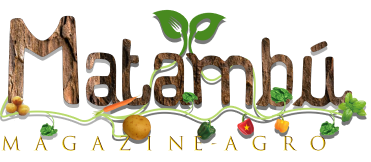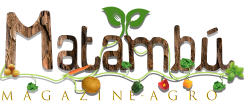[ad_1]
Thabo Dithakgwe of Nasi Ditha Farming began farming at 13 with the donation of a pregnant heifer from his father. Today he evokes many, younger and previous, as a shining instance that success in farming comes by laborious work and willpower. Peter Mashala visited him on his farm close to Tosca exterior Vryburg within the North West.
Thabo Dithakgwe, from Morokweng village within the Vryburg space, identifies himself as “the youngest farmer” on social media. It’s the casual trademark he’s carried since he began farming when he was 13. Now 21, Thabo is a business livestock farmer who runs 200 cattle, Boer goats and sheep on Ottawa Farm (2 500ha) exterior Tosca, between Vryburg and Mahikeng, within the North West province.
Thabo registered and acquired his model mark from the Department of Agriculture in 2015 when he was solely 14 after his dad Pushoetsile Dithakgwe, gave him his first pregnant heifer.
Operating as Nasi Ditha Farming Pty Ltd Thabo named his enterprise after his grandfather who, he says, performed a pivotal position in him turning into a farmer. Thabo says he learnt all the pieces he is aware of from his late grandfather, Nasi Dithakgwe, and from his dad. The two males set him on a path to turning into a profitable livestock farmer with a brilliant future within the farming business.
“My dad, a school principal, always trusted my abilities. He gave me the freedom to grow at my own pace, and when I was ready for responsibility while still young, he trusted me enough to give it to me,” he recollects.
A historical past of farming
Thabo grew up in a household of farmers. “My aunts, uncles and grandparents all farmed. I often visited my grandparents’ farm as a toddler,” says Thabo. His household, a land restitution beneficiary, efficiently claimed the Constable Farm in Pomfret, exterior Morokweng, beneath the Barolong Boo Maiketso Communal Property Association, granted in 2015.
This was when Thabo began farming part-time along with his dad and uncle. Once he had written matric, he enrolled on the Potchefstroom College of Agriculture the place he studied for a diploma in agricultural administration. The household appointed him as farm supervisor on the communal farm to handle the household herd, which included animals belonging to his aunts and uncles. “It was a great advantage because I had a place to work where I could apply what I had learned,” explains Thabo.
Although Thabo had the formal schooling, he shortly recognized the necessity for an skilled mentor who would advise him and assist him creating the required expertise. He was lucky to search out well-known Bonsmara cattle breeder, Christopher Melamu of Lamus Bonsmaras, from Reivelo close to Vryburg. “Working for Christopher was an ideal alternative to combine work with studying whereas incomes some cash.
At first, I used to be a common employee conserving information, sampling soil for testing and managing the grazing,” says Thabo. Because the Pomfret farm wasn’t a business entity but, Thabo labored for Christopher till he was promoted to full-time farm supervisor. As he continued to develop his personal enterprise and his herd numbers, the restricted dimension of the Constable farm was turning into a restriction.
“It was getting a bit cramped, and I wanted some room to expand and show that I was really serious,” he says. He then utilized for his personal land by the PLAS programme and was awarded Ottowa Farm in 2020. “This farm is about 10 000ha and has been subdivided into four equal parts to be shared with three other farmers,” explains Thabo.

Breeding Bonsmaras
Thabo moved along with his herd of 90 cattle to the brand new farm in 2020. Since then he has grown the herd to 200 Bonsmara-type animals. He is engaged on remodeling his mixed-breed herd right into a Bosmara herd. Working with Christopher turned him right into a Bonsmara lover, he explains.
“This is one of the best breeds that anyone can farm in South Africa,” he feedback. According to Thabo, Bonsmaras are functionally sound and extremely adaptable animals, which make them appropriate for his sandy semi-desert space very like the Kgalagadi. He provides that the cows have good mothering talents and temperaments. “They are a number one breed in the country, so I get good prices for my weaners at the auction,” he says.
Thabo sees himself as very lucky to have been granted such a giant farm with its plentiful sweetveld grazing. “The previous farmer had just de-bushed an area on my portion of the farm, which gave me more grazing and more carrying capacity,” explains Thabo. The carrying capability of this sweetveld area is 1 LSU on 10 ha.
He rotates the grazing by his camps. “In summer I move the cattle every week and in winter I move them every two weeks,” he says. He retains the pregnant animals nearer to his home in smaller camps in order that he can examine them day-after-day and hold the new child calves secure and protected against predators.
“This also makes it easier to assist with difficult births,” he provides. He has had challenges with some of his heifers struggling dystocia (extended or tough labour). The heifers had issues delivering calves that have been too huge for them and Thabo misplaced some first calvers and their calves. “I learned later that it was because I used a big bull on all my heifers. I’ve since acquired a smaller heifer bull,” he explains.
In summer time Thabo vaccinates his animals with Covexin®10, a multiclostridial vaccine for ailments corresponding to haemorrhagic enteritis, black quarter, tetanus and sudden loss of life syndrome. He additionally vaccinates towards botulism and anthrax. “We control the ticks in summer by dipping at least twice a month and we treat internal parasites with Ivomec,” says Thabo.
Towards winter he vaccinates towards Pasteurella and feeds out a P8 winter complement with urea from Tau Feeds. He additionally injects vitamin A for bone formation, progress, vitality metabolism, pores and skin and hoof tissue upkeep, and imaginative and prescient. Thabo feeds his bulls and cows manufacturing licks to organize them for the mating season.
The largest problem for him as a younger farmer who began farming early has been entry to funding. “I struggled a lot when it came to finding the money to invest in growing the herd, developing infrastructure and buying inputs,” he explains. He needed to rely primarily on his dad and mom to take loans on his behalf. “I was too young to get loans myself – I had no financial background and no property to use as surety,” he explains.
But he says his capability to community and make contacts and associates within the business has helped him. Recently a business farmer good friend and enterprise accomplice made a mortgage association with Thabo. “He loaned me 100 Bonsmara heifers, which I’ll repay over a few years by returning a certain percentage of male weaners into his feedlot,” he explains.


Niche marketplace for Boer goats
Thabo belongs to the Ghaapseberg Boergoat Group’s research group, which helps him by advertising and marketing his Boer goats. He is constructing a flock which he ultimately needs to register as a stud. “I have dreams of becoming a Boer goat stud breeder and exporting live breeding stock and meat to countries such as the UAE,” he says. He lately participated within the Ghaapseberg Boer Goat Group’s manufacturing sale in Vryburg the place he bought report costs of R4 500 every for 5 six-month-old animals.
“I don’t compromise on quality when it comes to my goats. When you produce a quality animal, people are willing to pay for it,” he says. Thabo believes that Boer goats are an excellent breed with excessive fertility and straightforward upkeep. In his semi-arid space he has sufficient grazing and browse materials from acacia bushes and native veld shrubs, which the goats utilise.
“The conditions are pretty tough but we try our best not to pamper our goats,” he says. “We feed supplement during mating, kidding and sale preparation.” In winter he feeds the pregnant ewes a maxi block with aloe to spice up colostrum manufacturing. Once the youngsters are born the moms get a lick combine of Procon 33, Maxiwol focus, Tau manufacturing lick, crushed yellow maize and salt. This helps with physique situation upkeep after lambing. He additionally feeds lucerne and floor nut hay bales, that are excessive in protein. that is good for milk manufacturing and child progress.
“I vaccinate my goats with Supavax P Plus and the OBP Bluetongue vaccine,” he explains.
Thabo has three kidding seasons in a yr, which has a optimistic influence on his money circulate. He weans the youngsters at 4 months and places younger rams by a progress trial. This means he can promote them at 12 months as business rams to communal and rising farmers who need to enhance their flock high quality. “I sell young ewes between eight and twelve months to interested buyers who want to breed,” says Thabo. He says there’s a area of interest market promoting goats to start-up farmers as a result of they’re low upkeep and straightforward to farm.
Thabo highlights the challenges introduced on by inventory theft. “We are close to the Botswana border so there is also some cross-border theft.” Thabo and his neighbours have arrange a farmer patrol and a few farmers have put in cameras on the roads.
Interrupted electrical energy provide is one other main drawback. “My water comes from boreholes and when there is load shedding, I need to run the borehole pumps off generator power,” he explains. Diesel costs are at present at an all-time excessive, so operating the turbines is dear. “All these things, including workers’ salaries, put pressure on me as a young farmer,” says Thabo.
He thinks the federal government ought to prioritise supporting younger individuals who need to farm. “We need young, vibrant people in positions of power in government to take young people seriously and change policies to encourage entry into agriculture. Their success is the country’s success,” says Thabo.



[ad_2]










